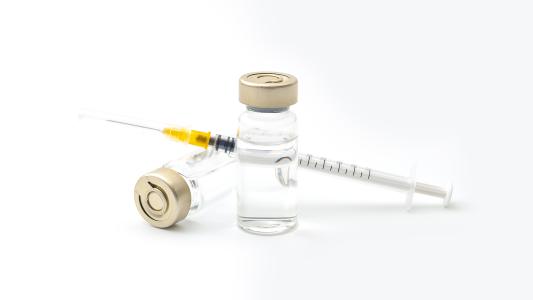In March, just two months after the novel coronavirus was discovered, Massachusetts biotech company Moderna launched the first clinical trial of a coronavirus vaccine — the fastest any potential vaccine has ever been developed.
On July 14, the company published a preliminary report on that trial in the New England Journal of Medicine — and it appears Moderna’s COVID-19 vaccine works as hoped.
“No matter how you slice this, this is good news,” Anthony Fauci, director of the National Institute for Allergy and Infectious Diseases, which funded the trial, told the Associated Press.
Moderna’s COVID-19 Vaccine
The Phase 1 trial of Moderna’s COVID-19 vaccine involved 45 healthy adults between the ages of 18 and 55. These participants were divided into groups of 15, with each group receiving a different dosage of the vaccine: 25 micrograms (mcg), 100 mcg, or 250 mcg. After 28 days, participants received a second dose.
More than half of the participants in the trial reported flu-like side effects, such as fever or chills — they were particularly unpleasant for three people in the 250 mcg group, and Moderna has decided to drop that dose from future trials.
The first shot of Moderna’s COVID-19 vaccine was enough to create binding antibodies in all of the participants. These antibodies attach to the coronavirus’s spike protein and flag it for immune cells to destroy, but they don’t directly prevent the virus from infecting cells.
The second dose, however, prompted the creation of neutralizing antibodies, which latch onto the virus and neutralize it, preventing it from infecting cells. The vaccine actually created higher levels of neutralizing antibodies than those found in people who’d recovered from COVID-19.
“The hallmark of a vaccine is one that can actually mimic natural infection and induce the kind of response that you would get with natural infection,” Fauci told STAT News. “And it looks like, at least in this limited, small number of individuals, that is exactly what’s happening.”
Disappearing Antibodies
Moderna’s COVID-19 vaccine isn’t the first to prompt this high level of antibodies — pharma giant Pfizer recently announced similar results from a trial of its own coronavirus vaccine — but the news is particularly welcome in light of some recent research.
At the time Moderna was kicking off its Phase 1 trial, most people believed that coronavirus survivors’ antibodies would protect them against reinfection. But a couple of recent studies suggest that those naturally produced antibodies may disappear after just a couple of months, at least for milder cases of COVID-19.
No matter how you slice this, this is good news.
Anthony Fauci
No one knows for sure what that means, but it’s possible the loss of antibodies will equate to a loss of immunity to the virus in some survivors — meaning they, too, would be susceptible to the coronavirus.
Hopefully, the higher levels of antibodies produced by the vaccine will produce longer-lasting immunity.
Moderna has already begun a placebo-controlled Phase 2 trial of its vaccine, and it plans to launch a Phase 3 trial involving 30,000 participants on July 27. That trial will test the ability of a double shot of the 100 mcg dose to prevent a COVID-19 infection for up to two years.
Only when those results are in will we know for sure whether Moderna’s COVID-19 vaccine deserves the current hype — but based on this preliminary data, it’s looking up.
We’d love to hear from you! If you have a comment about this article or if you have a tip for a future Freethink story, please email us at [email protected].





